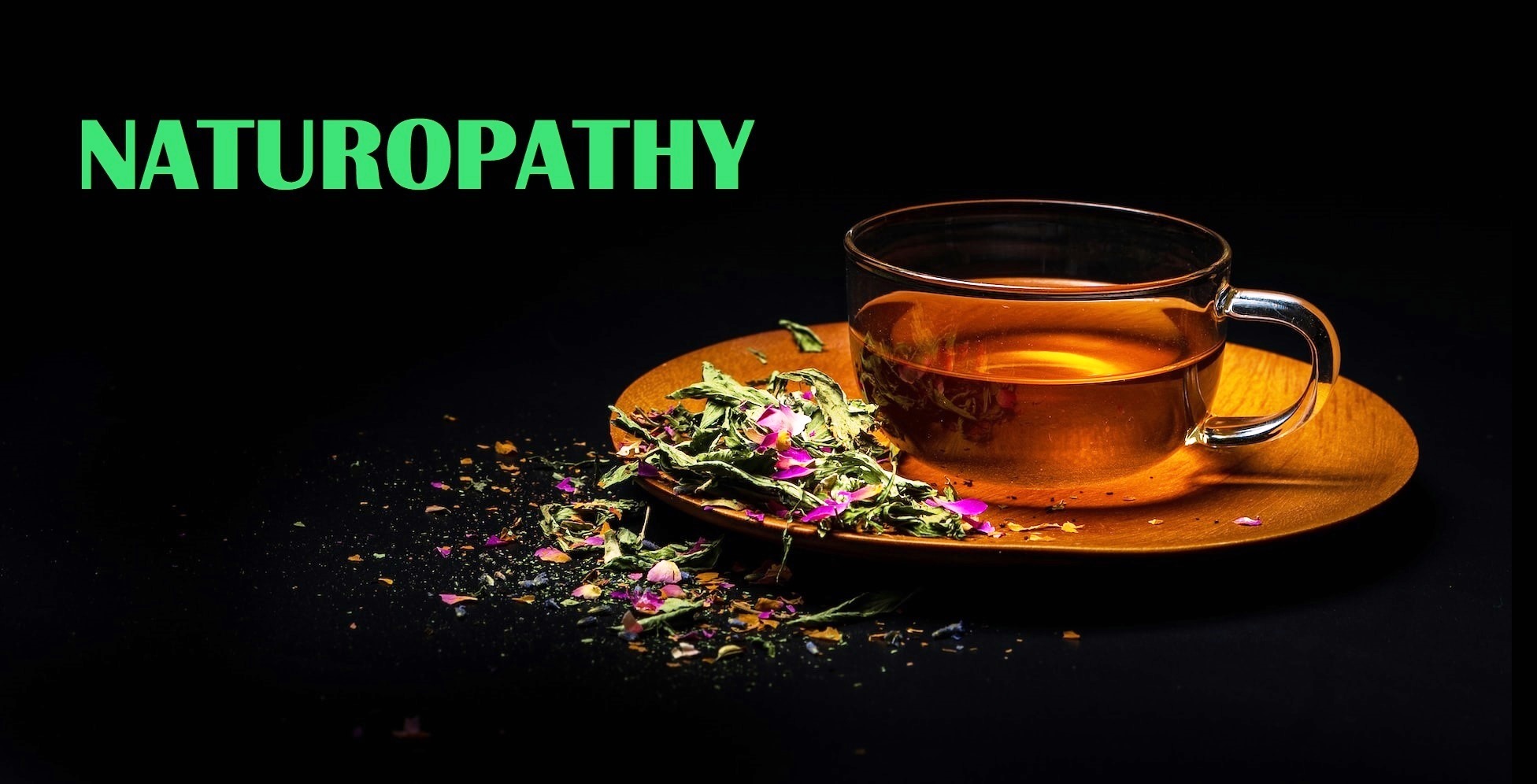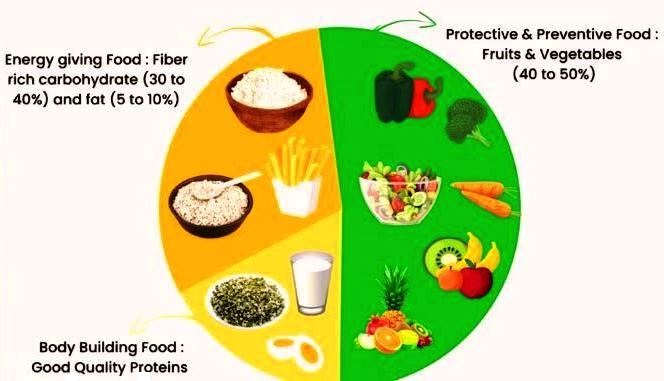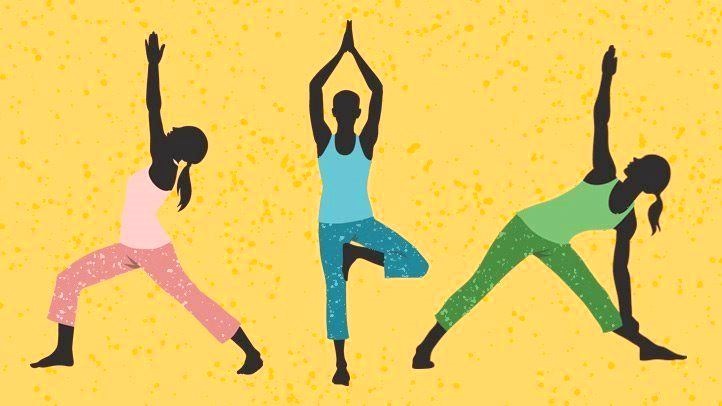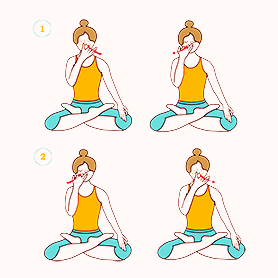Naturopathy and yoga offer holistic approaches to detoxification that focus on restoring balance and promoting wellness. Let’s delve into how these practices can be integrated for thorough body detoxification.
In the pursuit of holistic well-being, the amalgamation of naturopathy and yoga stands as a powerful combination. Both practices emphasize natural methods to restore the body’s equilibrium and facilitate detoxification, aiming not only to eliminate toxins but also to rejuvenate the mind, body, and spirit.
An in-depth study of these two from a premier university also matters. IIMT University excels in imparting top-notch naturopathy and yoga studies through a comprehensive curriculum and experienced faculty. The university blends theoretical knowledge with practical training, fostering a holistic understanding of natural healing methods. State-of-the-art facilities at our own hospitals and collaborative learning environments further enhance students’ skills, ensuring excellence in naturopathy and yoga. This top-notch comprehensive study makes the university known as the best private university in Meerut, U.P.
❖ Naturopathy: Realigning with Nature’s Healing Principles

Naturopathy is founded on the principle that the body possesses an innate ability to heal itself when provided with the right conditions. It employs natural remedies, lifestyle modifications, and therapies to support the body’s healing processes and detoxification. Here are key elements of naturopathy in the context of detoxification:
1. Nutritional Healing:

Naturopathy emphasizes a nutrient-dense, whole foods-based diet rich in fruits, vegetables, nuts, seeds, and whole grains. This approach ensures ample intake of antioxidants, vitamins, and minerals that support the body’s detoxification pathways.
2. Herbal Remedies and Supplements:

Herbal remedies and supplements, carefully selected to aid detoxification, are often used in naturopathic practices. These supplements may include herbs known for their cleansing properties, such as milk thistle for liver support or dandelion root for kidney health.
3. Hydrotherapy and Detox Baths:

Hydrotherapy treatments and detox baths, including Epsom salt baths or herbal baths, stimulate circulation, promote sweating, and aid in toxin elimination through the skin.
❖ Yoga: Balancing Body and Mind for Detoxification

Yoga, an ancient practice originating from India, goes beyond physical postures. It integrates breathwork, mindfulness, and movement to achieve a harmonious connection between the body, mind, and spirit. When applied to detoxification, yoga offers several benefits:
1. Cleansing Breathwork (Pranayama):

Pranayama techniques, such as deep breathing exercises (like Kapalabhati and Nadi Shodhana), enhance oxygenation and stimulate the body’s natural detoxification processes.
2. Detoxifying Asanas (Poses):
Specific yoga poses, including twists (like Ardha Matsyendrasana) and inversions (like Shoulder Stand or Legs-Up-The-Wall Pose), promote circulation, massage internal organs, and facilitate toxin removal.
3. Stress Reduction and Mindfulness:
Yoga practice incorporates mindfulness and meditation, reducing stress and promoting mental clarity. Stress reduction is pivotal in detoxification as heightened stress levels can impede the body’s natural healing processes.
❖ Integration for Optimal Detoxification:
When integrated, naturopathy and yoga complement each other, creating a synergistic approach to detoxification.
⮚ Nutritional Alignment: Naturopathic dietary recommendations can be coupled with yoga’s emphasis on mindful eating practices.
⮚ Holistic Cleansing: Yoga’s emphasis on movement and breathwork complements naturopathic detox methods, promoting overall wellness.
⮚ Stress Reduction: Both practices focus on stress reduction, crucial for optimal detoxification and overall health restoration.
❖ Strategies for Effective Body Detoxification:
1. Hydration – The Power of Water:
Water is the cornerstone of any detoxification regimen. Adequate hydration facilitates toxin elimination by supporting kidney function. Aim for at least 8-10 glasses of water daily. Additionally, herbal teas like green tea, dandelion tea, or ginger tea can provide extra detoxification support.
2. Nutrient-Rich Diet:
A diet rich in plant-based foods such as fruits, vegetables, nuts, and seeds is fundamental to a successful detox. These foods contain antioxidants and essential nutrients that aid the body in its natural cleansing processes. Moreover, incorporating fiber-rich foods like whole grains and legumes can promote regular bowel movements, facilitating toxin elimination through the digestive tract.
3. Minimizing Toxin Intake:
Reducing intake of processed foods, refined sugars, and artificial additives is pivotal in reducing the toxin load on the body. Opting for organic produce can also significantly minimize exposure to pesticides and chemicals.
4. Embrace Supportive Practices:
Exercise plays a crucial role in supporting detoxification. Physical activity promotes circulation, allowing toxins to be flushed out more efficiently. Furthermore, sauna or steam therapy can induce sweating, aiding in the release of toxins stored in the body.
5. Prioritize Rest and Stress Management:
Quality sleep is essential for the body’s natural healing and repair mechanisms. Aim for 7-9 hours of uninterrupted sleep nightly. Alongside this, implementing stress reduction techniques such as meditation, yoga, or deep breathing exercises can significantly reduce stress levels, supporting overall well-being.
6. Moderate Alcohol and Caffeine Consumption:
Reducing alcohol intake is advisable to alleviate the burden on the liver, a primary organ involved in detoxification. Similarly, considering the reduction of caffeine intake or exploring herbal teas and decaffeinated alternatives can positively impact detoxification efforts.
7. Consideration of Supplements or Detox Programs:
When contemplating supplements or structured detox programs, seeking guidance from a healthcare professional is crucial. Consulting with a professional ensures a personalized approach aligned with individual health needs and goals.
❖ Tips for Detoxifying the Body:
1. Hydration:
● Water: Staying hydrated is crucial for flushing out toxins. Aim for at least 8-10 glasses of water daily.
● Herbal Teas: Green tea, dandelion tea, or ginger tea can support detoxification.
2. Nutrient-Rich Diet:
● Increase Plant-Based Foods: Fruits, vegetables, nuts, and seeds are rich in antioxidants and nutrients that aid in detoxification.
● Fiber: Whole grains, legumes, and fiber-rich foods help in regular bowel movements, facilitating toxin elimination.
3. Minimize Toxin Intake:
● Reduce Processed Foods: Limit consumption of processed foods, refined sugars, and artificial additives.
● Organic Foods: Choose organic produce to minimize exposure to pesticides and chemicals.
4. Supportive Practices:
● Exercise: Physical activity promotes circulation and sweating, aiding in the elimination of toxins through the skin.
● Sauna or Steam Therapy: Sweating can help release toxins stored in the body.
5. Proper Rest and Stress Management:
● Quality Sleep: Aim for 7-9 hours of quality sleep to support the body’s natural healing and repair processes.
● Stress Reduction: Practices like meditation, yoga, or deep breathing can reduce stress and support overall well-being.
6. Limit Alcohol and Caffeine:
● Alcohol: Minimize alcohol intake to reduce the burden on the liver.
● Caffeine: Consider reducing caffeine intake, opting for herbal teas or decaf alternatives.
7. Consider Supplements or Detox Programs:
● Consult a Professional: Before starting any detox program or taking supplements, it’s essential to consult a healthcare professional for personalized advice.
❖ Conclusion:
Combining naturopathy and yoga offers a holistic approach to detoxification, aligning with the body’s natural healing capacities. By incorporating nutritional healing, herbal remedies, hydrotherapy, yoga poses, breathwork, and mindfulness practices, individuals can embark on a comprehensive journey towards detoxification, rejuvenation, and enhanced well-being.
This integrated approach, centered on the principles of naturopathy and the holistic practices of yoga, empowers individuals to support their bodies in cleansing and revitalizing, fostering a harmonious balance between body, mind, and spirit. As always, it is recommended to consult with qualified practitioners before embarking on any new detoxification regimen to ensure it aligns with individual health needs and goals.
At IIMTU, the overall knowledge imparted to our students is a testament of our alumni. This success has gained IIMT University the prestigious title of the best university in U.P.
Author: Dr. Simran
Asisstant professor CoNYS, IIMTU
To delve into the fascinating world of nature- 🌐 click here












